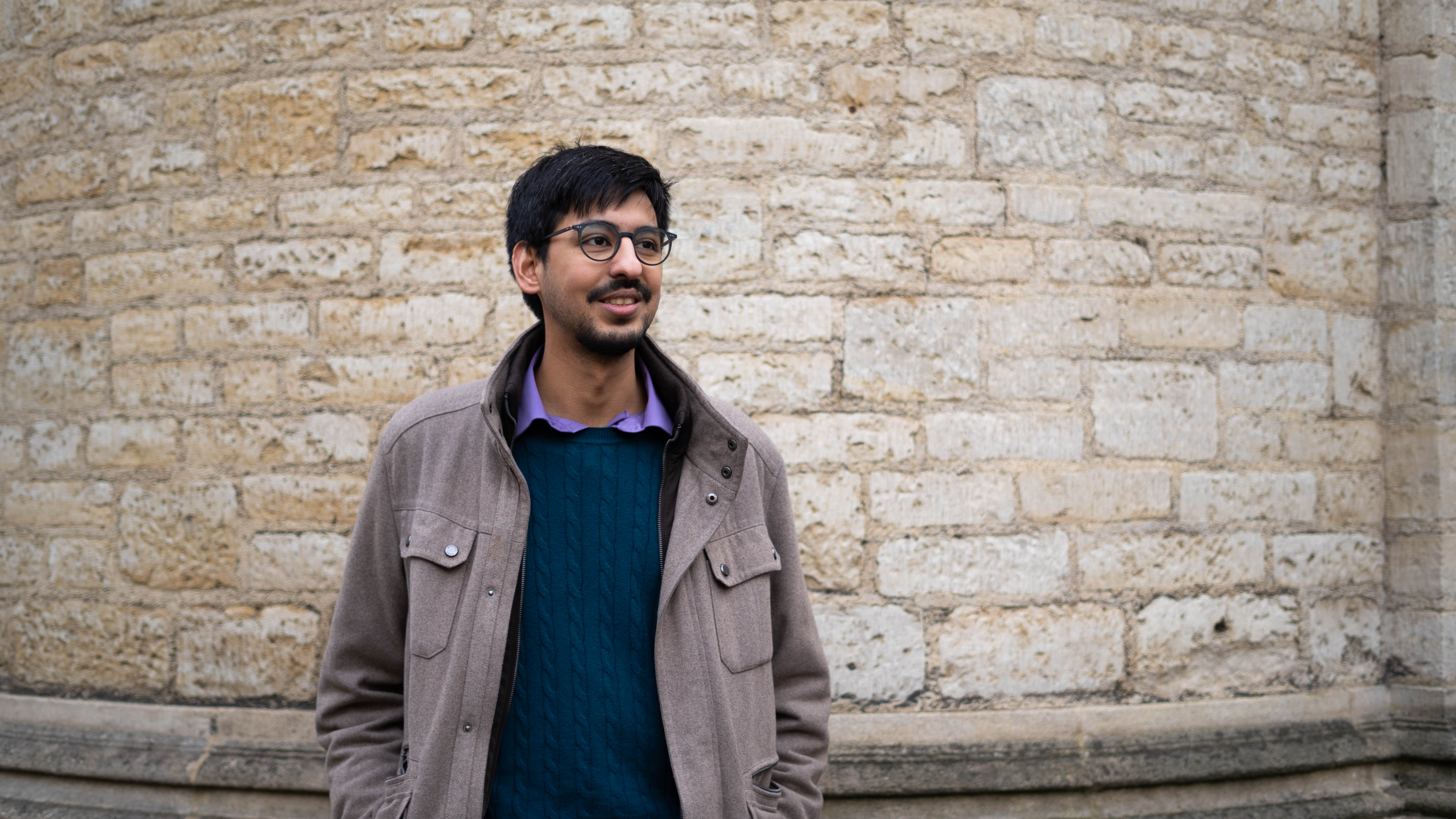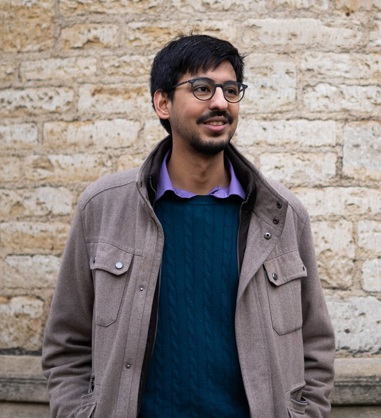04 Jul 2023
Harrison Steel and Mihir Sheth named Young Engineers of the Year by Royal Academy of Engineering
As overall winner of the Awards, which are given to five UK engineers each year, Professor Steel is also recipient of the prestigious Sir George Macfarlane medal

Professor Harrison Steel with members of the Control Engineering lab. Photo: Olivia Gaskin
Harrison Steel, Associate Professor of Engineering Science at the University of Oxford, and Institute of Biomedical Engineering Research Assistant Mihir Sheth, have won RAEng Engineers Trust Young Engineer of the Year awards, which recognise incredible contributions to their respective fields in their career. As the overall winner of the competition, Professor Steel also receives the Sir George Macfarlane Medal from the Royal Academy of Engineering. Named after the wartime radar pioneer, the award recognises the potential of engineers working in the UK who have demonstrated excellence in the early stage of their career.
Professor Steel’s award recognises his contributions to engineering, including research in biotechnology, development of open-source tools such as the Chi.Bio Bioreactor platform, as well as other contributions such as working on Covid-19 response projects during the pandemic.

Professor Steel works at the interface of control engineering, synthetic biology, and robotics. He builds new technologies that combine electronic and biological components, and applies these to address new scientific questions as well as industrial and environmental applications. Recently this has included building tools that can mitigate the evolution of antibiotic resistance, control microbial ecosystems (such as the gut microbiome), and use bacteria for environmentally-friendly production of chemicals.
For instance, the Chi.Bio platform is an automated robotic system which provides unique capabilities for biotechnological research and development and has achieved broad impact via dissemination as an open-source, low-cost technology. The platform has been adopted by researchers around the world and is particularly benefiting early-stage companies, academics, and researchers in developing countries, with more limited access to high-end equipment.
Professor Steel says, "I very much appreciate the spotlight this award puts on our past work on open and accessible Engineering. None of this would have been possible without the efforts of our lab team, collaborators, and mentors who have contributed so much over the past several years toward helping build our research program. Similarly, the resources at Oxford and in the Department of Engineering Science have been integral to our success; we've been able to quickly prototype new technologies, test these on biological challenges, then work to scale-up their manufacturing to get them in the hands of users worldwide."

 Mihir Sheth was recognised for developing a device that improves ventilator outcomes by keeping patients’ muscles active from day one of ventilation, as well as his cutting-edge research to help people with chronic respiratory diseases. As a Research Assistant in the Oxford Institute of Biomedical Engineering‘s BUBBL team he is investigating the efficacy of Oxygen Nanobubbles as a potential treatment for patients with chronic respiratory diseases, such as pulmonary fibrosis.
Mihir Sheth was recognised for developing a device that improves ventilator outcomes by keeping patients’ muscles active from day one of ventilation, as well as his cutting-edge research to help people with chronic respiratory diseases. As a Research Assistant in the Oxford Institute of Biomedical Engineering‘s BUBBL team he is investigating the efficacy of Oxygen Nanobubbles as a potential treatment for patients with chronic respiratory diseases, such as pulmonary fibrosis.
When COVID-19 hit, he was working in a team assessing medical needs in a regional hospital in Senegal.
They realised that loss of muscle strength resulting from being ventilated meant some patients spent twice as long on ventilators as would otherwise be necessary, contributing to muscle atrophy. Along with a consultant anaesthetist from the NHS he developed the StimSpirit device, which uses non-invasive electrical muscle stimulation to keep respiratory muscles engaged while a patient is being ventilated.
He says: “Winning this award feels amazing. It’s an honour to be recognised by the Royal Academy of Engineering, as it shows that the leading engineers of today see the value in young engineers forging interdisciplinary careers from an early stage, and of bridging industry and research in order to drive innovation. This is not a path that is usually taken and this award validates the risks and challenges of this journey.”
Each year, the Royal Academy of Engineering’s Young Engineer of the Year Awards make five awards of £3,000 each year to UK engineers in full-time higher education, research or industrial employment, who have demonstrated excellence in the early stage of their career. The Sir George Macfarlane medal, awarded to the overall winner of the Awards, is made in memory of Sir George Macfarlane FREng (1916-2007), one of the founding Fellows of the Royal Academy of Engineering.
Professor Bashir Al-Hashimi CBE FREng FRS, Chair of the Royal Academy of Engineering Awards Committee, says: “I congratulate all our Young Engineers of the Year. They may be at the beginning of their careers, but they are already pushing the boundaries of engineering knowledge, pioneering innovations that benefit society to help solve some of humanity’s greatest challenges, and inspiring the next generation.”
Further information about the awards can be found on the Royal Academy of Engineering’s website.

Image: Rob Lacey




